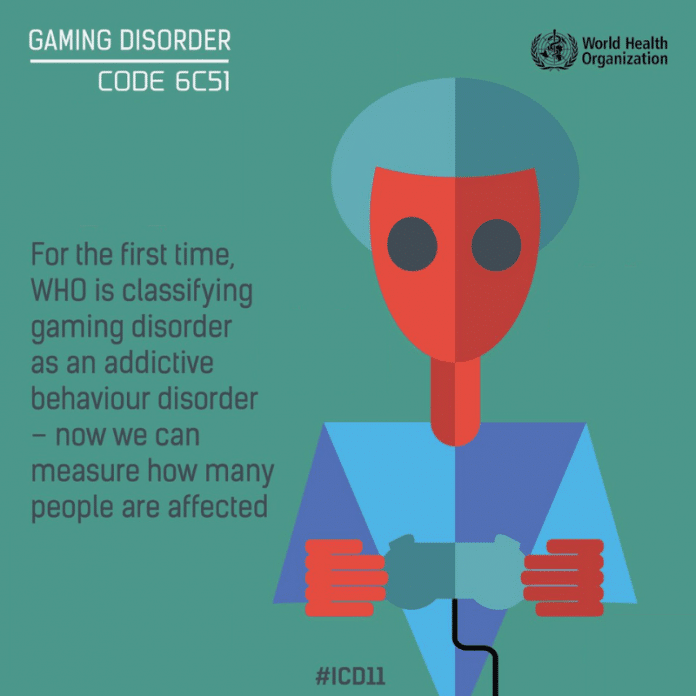Use of the Internet, computers, smartphones and other electronic devices has dramatically increased over recent decades, and this increase is associated not only with clear and tremendous benefits to the users but also with documented cases of excessive use which often has negative health consequences.
What is gaming disorder?
Gaming disorder, with its online and offline variants, is a clinically recognizable and clinically significant syndrome when the pattern of gaming behaviour is of such a nature and intensity that it results in marked distress or significant impairment in personal, family, social, educational or occupational functioning.
Health concerns associated with gaming behaviour are not limited to gaming disorder, but also include other aspects of health (e.g. insufficient physical activity, unhealthy diet, problems with eyesight or hearing, musculoskeletal problems, sleep deprivation, aggressive behaviour and depression) and psychosocial functioning.
Should all people who engage in gaming be concerned?
Studies suggest that gaming disorder affects only a small proportion of people who engage in digital- or video-gaming activities. However, people who partake in gaming should be alert to the amount of time they spend on gaming activities, particularly when it is to the exclusion of other daily activities, as well as to any changes in their physical or psychological health and social functioning that could be attributed to their pattern of gaming behaviour.
Further reading –
- Gaming disorder – Online Q&A with the World Health Organization
- Public health implications of excessive use of the Internet and other communication and gaming platforms (WHO)
- Inclusion of “gaming disorder” in ICD-11
Additional links:




